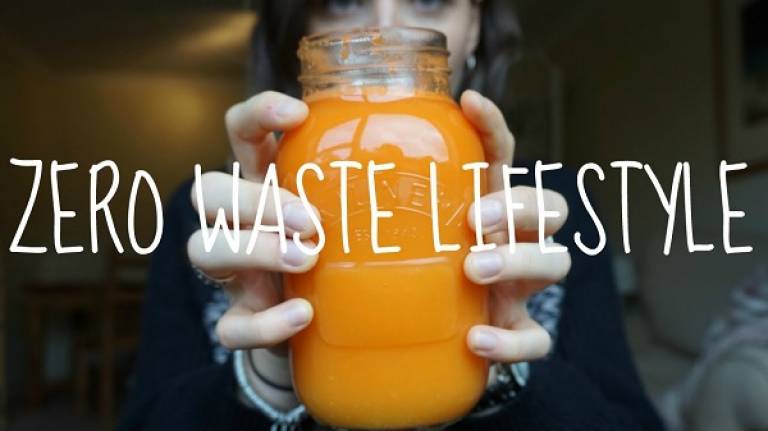UCL student Ilmira Murni gives the low down on the Zero Waste Movement
2 February 2018

Going zero waste seems like a radical change to a typical person’s lifestyle. It may seem difficult to live without generating waste or throwing out trash, but the zero waste movement is more than just about seeing if you can fit 4 years’ worth of trash into a mason jar, it’s about creating a sustainable future. Here are a few things to consider about how we lead our lives.
Plastic straws take up to 200 years to decompose.
The first ever straw you ever threw out is still sitting in a landfill somewhere. Plastic may be the most convenient thing we have ever created, but convenience does not mean better. A lot of the time we throw out things and completely disregard what happens to it, but this does not change the fact that the trash we throw out is still out there, probably suffocating an animal or taking up precious land that could otherwise be used to build houses, plant food, etc. That is why the first policy in zero waste is to Refuse. Where you can, refuse disposable items and opt for reusable ones, e.g. a metal/bamboo straw over a plastic one, a water bottle over a plastic cup. Disposable items are good for one time, and bad for hundreds of years.
The options are there, and they’re cheap!
There are many zero waste options for almost everything, and these options are more often than not cheaper than their prepackaged disposable counterparts. You can opt for unpackaged fruits and veg at grocery stores, or shop at local vendors or farmers. You can bring your own containers/bags and get your loose grains (rice, pasta, cereals) from bulk food shops- there are quite a number in London!
Grocers that offer unpackaged options often charge less for loose items in comparison to the same packaged item. Try bringing your own flask the next time you get coffee, chances are you’ll probably get a small discount. There are options for personal grooming needs too; menstrual cups/cloth pads instead of disposable pads/tampons, a safety razor instead of disposable razors. It is more than likely that there is a more sustainable option for everything you need, and it will probably help you with your finances!
Every little bit counts
Is ‘not throwing out trash’ going to impact the environment significantly? Well let’s say one person who drinks coffee everyday decides to bring a container instead of using a disposable cup. That’s 365 cups saved from going to landfills. Now think of all the everyday things that you throw out. Imagine how much less waste you could generate if you just opt for a reusable option. A lot of people are quick to point out that the effort of one person can’t possibly make a difference, but for a cause like this, it definitely can. Even if you commit to switching out one disposable item for a reusable one, you are contributing to a more sustainable future.
Your purchases have power.
We tend to forget that as consumers what we spend our money on is a vote on how you want things to be produced. Business’s in the modern era rely so much on plastic, and aren’t held accountable at all to the waste they generate. Instead, they shift the burden of conserving the environment to governments and consumers. However, imagine if we all started only buying things that were either sustainably produced, or made of recyclable material. If there was a higher demand for sustainability, businesses would come up with more sustainable options. Collectively, consumers can reform the landscape of businesses and economies, we just need to be a little bit more mindful of our purchases and realise that we don’t need to buy things that aren’t good for our future.
You don’t need anything other than a little bit of mindfulness to start going zero waste. We have the ability to shape the way we produce and consume, to create a sustainable future, and adopting a zero waste lifestyle makes you an effective contributor to that future. The term zero waste may seem intimidating so I’ll end this piece by saying that it all starts with being less-waste-than-before, and that’s easier and more important than most people realise.
 Close
Close

